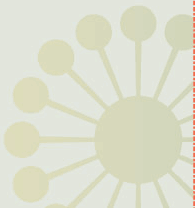GATE OF
THE YEAR When the Queen Mother Elizabeth died in March of this past year,
among the memories of the British people was the support she had
given to her husband and to her nation during the darkest days of
the Second World War. In 1939, much of London had been destroyed
by Nazi bombs, and in his Christmas Day broadcast King George VI
tried to reassure the British people. The Queen had remembered the
words of a poem written by Minnie Louise Haskins, an American lecturer
at the London School of Economics. The King concluded his remarks
by saying, "A new year is at hand. We cannot tell what it will bring.
If it brings peace, how thankful we shall all be. If it brings us
continued struggle we shall remain undaunted. In the meantime I feel
that we may all find a message of encouragement in the lines which,
in my closing words, I would like to say to you all."He then read
from Minnie Haskins' poem, "God Knows:" As we stand in the gate of a new year, darkness has once again come upon us as we face the threat of war, economic uncertainty, and terrorist activity in our own nation. We never know what a new year will bring to our families and friends and the changes that will affect our relationships with others. Every year brings its mixed bag of blessings, of crises and opportunities, of challenges and successes, of misfortune and good fortune. And often we cannot distinguish among them. There is an old story told among the Taoists of China about a farmer whose horse ran away and the farmer's neighbor's came over to offer him their sympathy. "I'm not so sure it's a misfortune," said the farmer. The neighbors left, shaking their heads. The next day, the farmer's horse returned, and three wild horses came home with him. The neighbors returned to congratulate the farmer on his good fortune. "I'm not certain that it is good fortune," replied the farmer. The neighbors left, more bemused than before. Later that week, the farmer's son broke his leg trying to train one of the new horses, and the neighbors came by to offer condolences. "I'm not sure this is a misfortune," said the farmer again. The neighbors left, discussing the man's mental state among themselves. The next day, the emperor came through, gathering up young men to be in his army. They bypassed the farmer's son, since he had a broken leg. Some three thousand years ago the nation of Israel was going through a time of great moral uncertainty and spiritual darkness. The future was bleak, depression and despair gripped many. Yet God spoke a message of hope to his people: "The people walking in darkness have seen a great light; on those living in the land of the shadow of death a light has dawned . . . For to us a child is born, to us a Son is given . . . And He will be called Wonderful Counselor, Mighty God, Everlasting Father, Prince of Peace." We are living in the light of Christmas and God's message of hope is still clear: "The rising sun will come to us from heaven to shine on those living in darkness and in the shadow of death, to guide our feet into the path of peace." (Luke 1:78-79) We do not know what the new year will bring. We only know that if
we "put our hand into the hand of God, that shall be better than
a light and safer than a known way."
|
|
